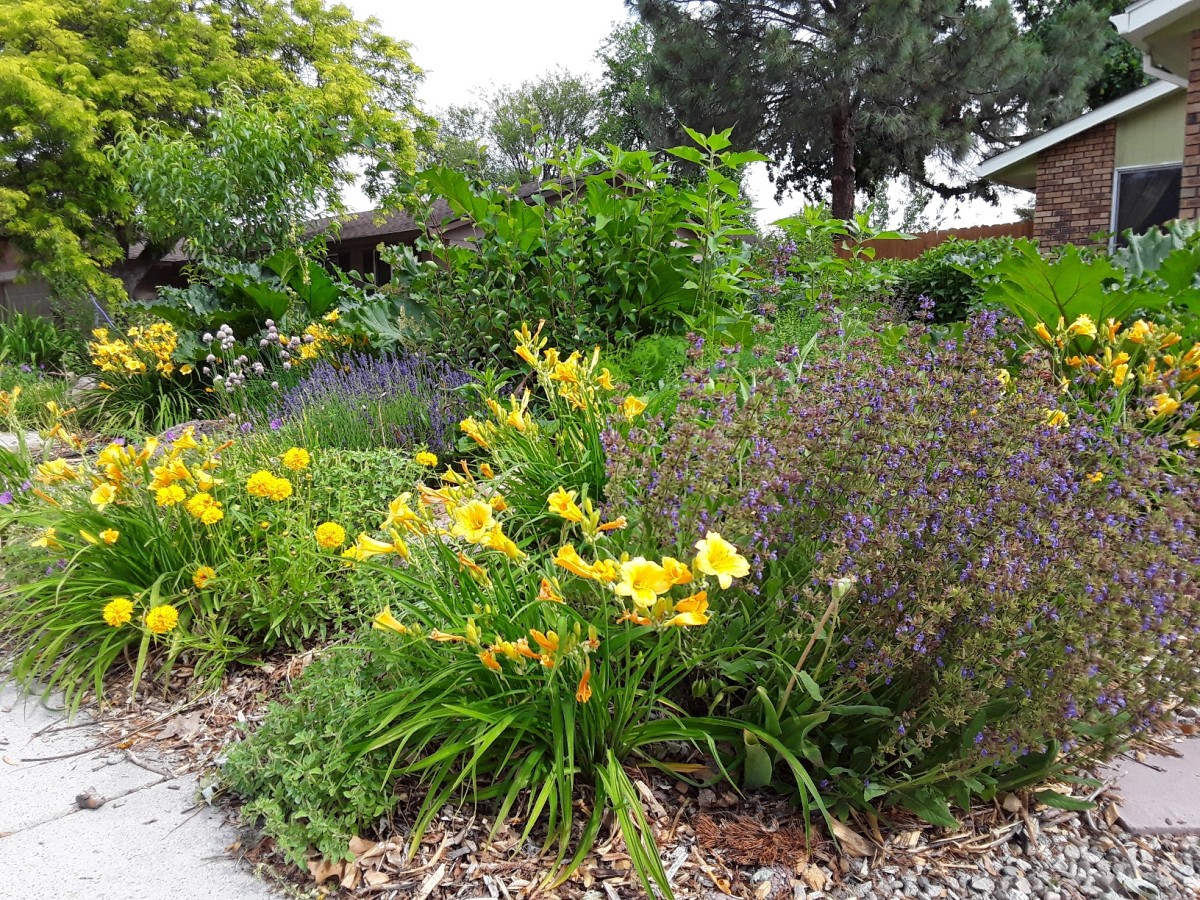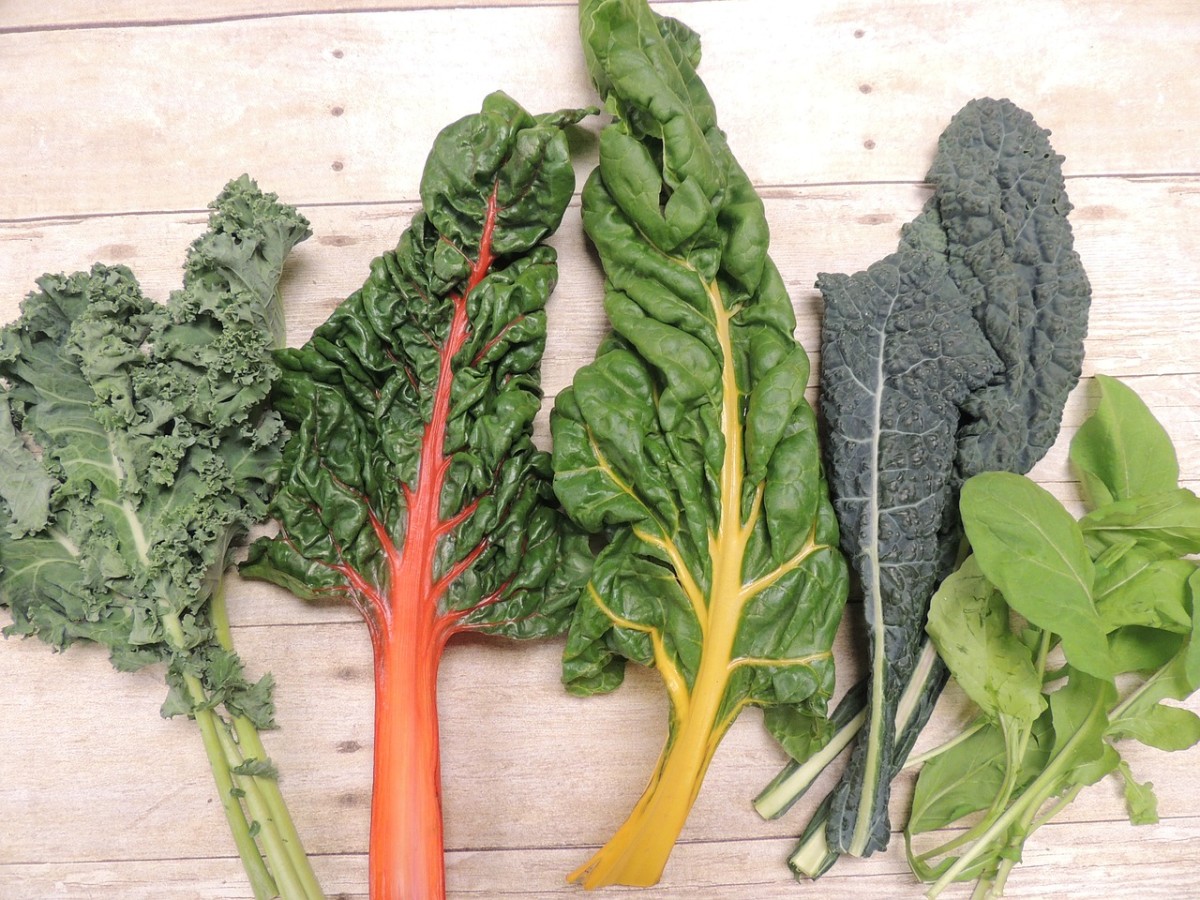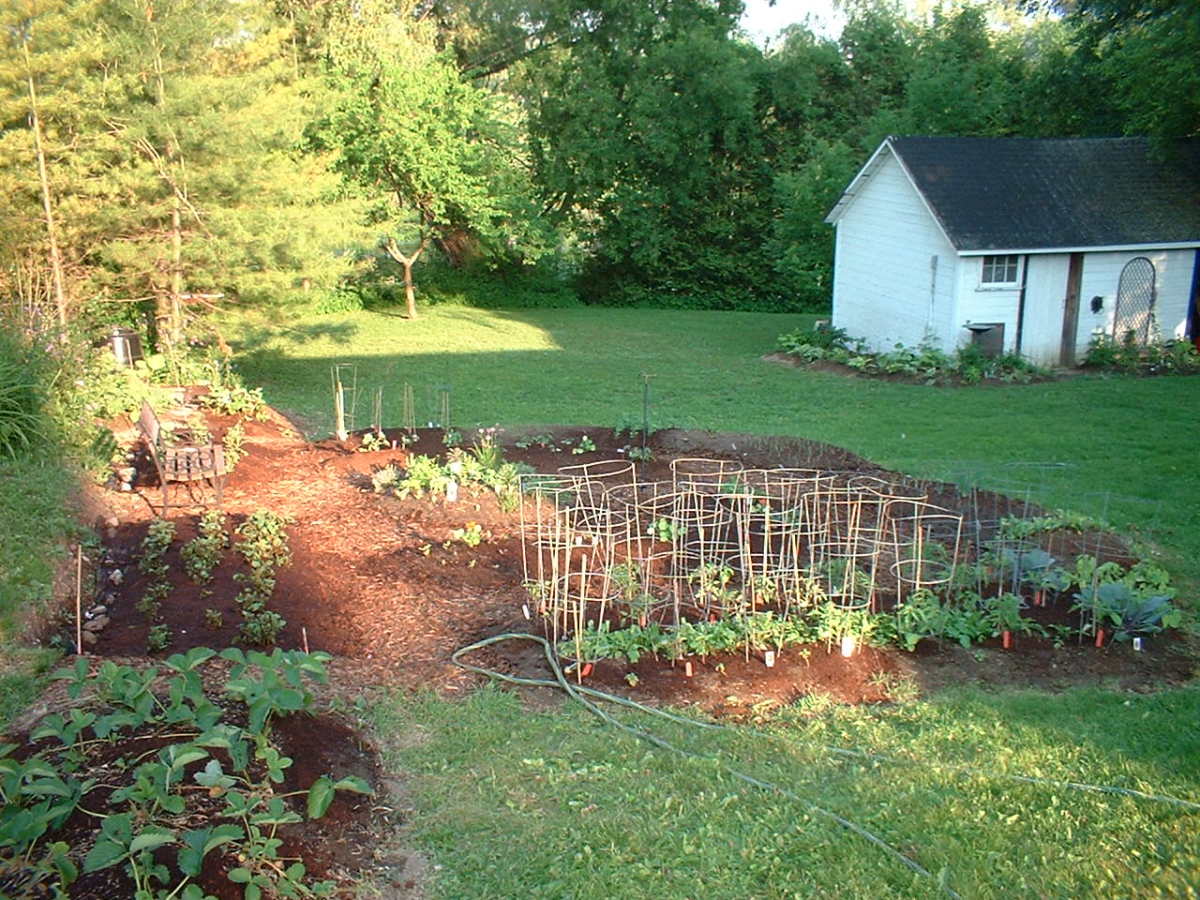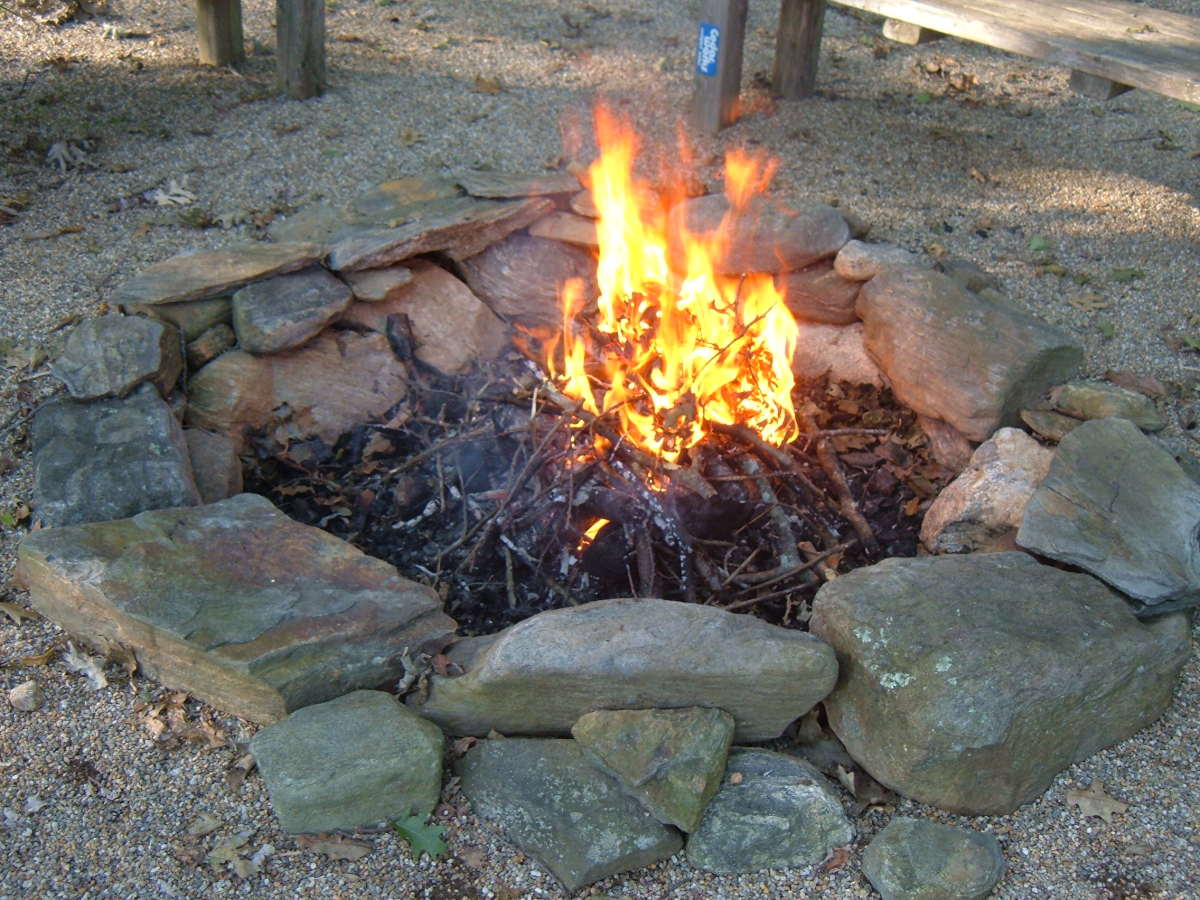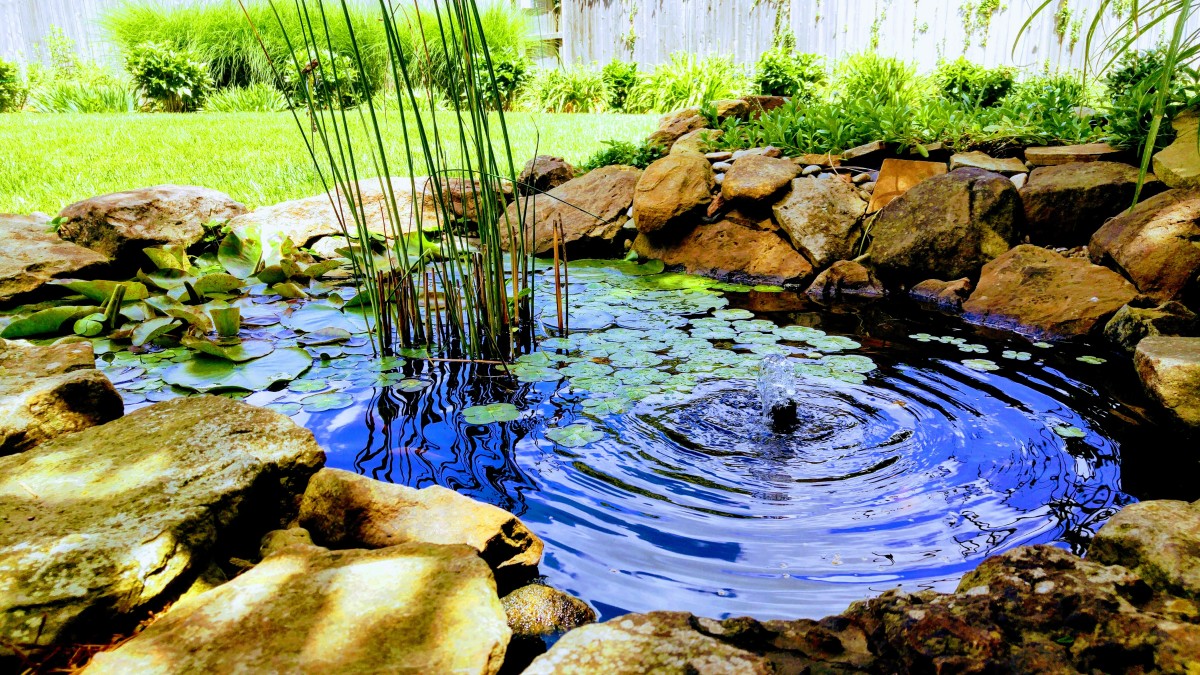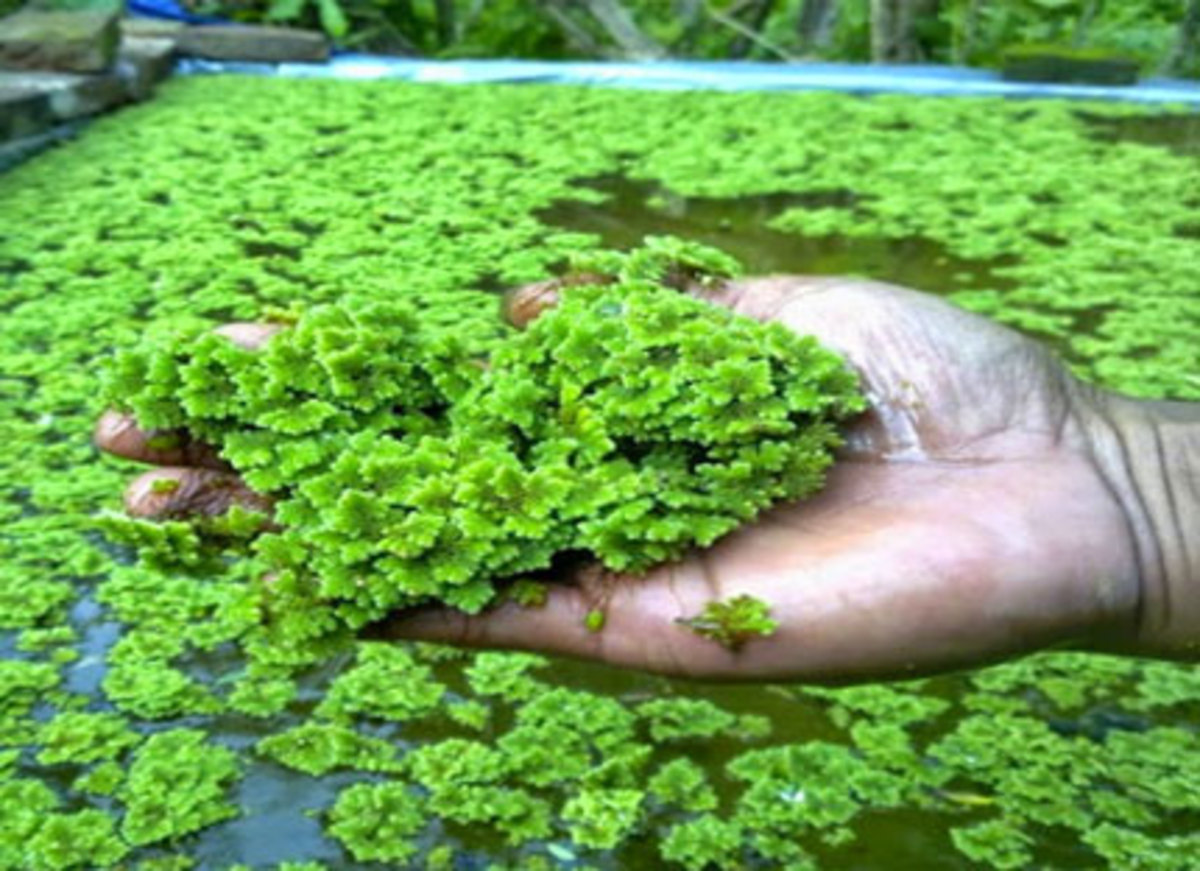How To Save Your Life With Edible Landscaping
The United States switched from a majority rural to a majority urban population sometime in the late 1910's, and our state of overall health, after a brief improvement due to better health care, has been declining ever since.
Today, we are increasingly a nation of the fat, the depressed, the diabetic, the cancer ridden, the insomniac, and the chronically diseased of all sorts.
It's true that not all of these problems can be attributed to the fact that the majority of Americans no longer grow one single tomato's worth of our own food, but a surprising number of them can.
Gardening can save your life. At the very least, it will improve it.
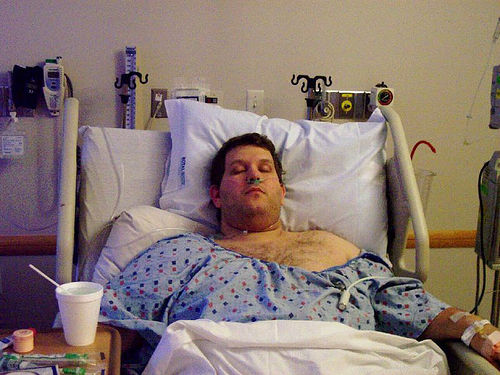
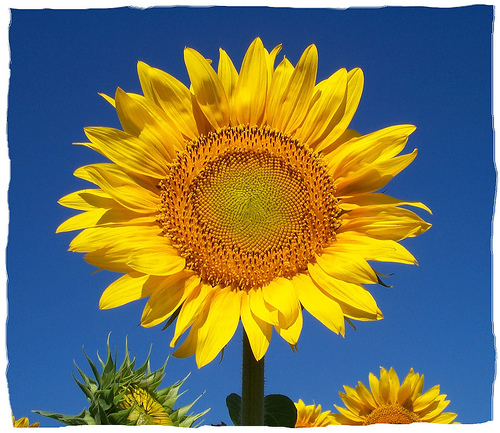
Gardening Gets You Out in the Sun
Supreme Court Justice Louis D. Brandeis once said, "Sunshine is the best disinfectant." He was talking about political corruption, but believe it or not, he was actually right about health too. People who spend their lives in fresh air and sunshine, as a general rule, don't catch as many illnesses in the first place and don't get as sick when they do, because the sunshine burns the nasties right out of them.
Sunshine also helps the body manufacture vitamin D, an important vitamin that helps prevent osteoporosis, type 2 diabetes, heart disease, hypertension, and many types of cancer, including breast and colon cancer. Sure, you can drink milk that has been fortified with vitamin D to get your share of this important nutrient, but as you might expect, the body uses the vitamin D it makes itself more easily and effectively than the vitamin D it gets from food.
Finally, gardening can save you some money on tanning bills, if that's your thing. Garden in your bikini instead! I even hear tell of some people (presumably with very tall fences) who like to garden naked.
Nota bene: too much sun will kill you just as assuredly as too little, so take proper precautions against skin cancer - wear hats, don't work outside in the sunniest hours of the day (between 10 AM and 3 PM in most parts of the country), wear sunscreen when you'll be outside for extended periods.... the usual deal.
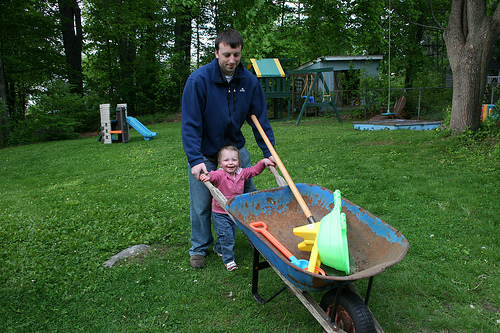
Gardening Gets You Moving
Most Americans know that we're supposed to exercise at least half an hour five days a week, but many of us also have trouble fitting that into our schedule day in and day out. Many of us give up as a result, but a healthier answer to the problem is to simply create many smaller periods of physical activity throughout the day.
Gardening is a great way to do this.
Gardening really isn't as hard work as it's sometimes portrayed. For most people, the hardest part will be digging the beds and if you build permanent raised beds (which I recommend that you do), you'll only really ever have to do that once. If you use a technique called lasagna gardening, you may be able to get away with no digging at all.
However, gardens do require fairly regular attention in the form of watering and weeding. You can reduce the need for that with mulching (which I also recommend) but probably not completely eliminate it.
Building a completely work-free garden is neither possible nor wise. The health benefits of spending a few minutes a day puttering around checking everything and pulling weeds far outweigh the inconvenience.
Gardening is Good for the Soul
You can take that as literally or as figuratively as you wish. The fact of the matter is, gardeners tend to be more mentally healthy and emotionally resilient than non-gardeners.
Recent studies have begun to uncover the science of why.
Humanity, it turns out, needs nature. Without it, we quite literally go insane.
Increasing exposure to the natural world through gardening, hiking, and other outdoor activities has been found to reduce symptoms of depression, anxiety, aggression, and a number of mental disorders, including (most famously) ADHD and ADD.
Even something as simple as looking out a window onto a green space can elevate the mood and reduce stress. Combining the mental benefits of natural landscapes with the physical benefits of fresh air, sunshine, and exercise gives mental health an additional boost - physical exercise in particular has been known to improve mental health since at least the days of the ancient Romans, when Juvenal wrote "Sit mens sana in corpore sano," a sound mind in a sound body.
An additional mental benefit for gardeners is the sense of accomplishment and self-confidence gained from a job well done.
Learn more about "nature deficit disorder" and how to prevent it in the video below:
Gardening Improves Your Diet
So far, the benefits of gardening that we've talked about apply to any type of gardening, but the title of this article is "How To Save Your Life With Edible Landscaping" and this is where the edible landscaping part really comes in.
As enjoyable as a beautiful rose garden or a perfectly manicured lawn might be, neither puts food on your table and because of that, gardeners who confine themselves to growing ornamentals or lawns or other inedible beauties miss out on the single most important benefit of gardening: gardening improves your diet.
The average American gets one third of all servings of vegetables from just three sources: french fries, potato chips, and iceberg lettuce. Despite the tremendous health benefits of a diet rich in fresh fruits and vegetables, most Americans get only one half their daily recommended allotments of fruits and vegetables, even though these can be met with little more than a couple bananas and a large salad at lunch.
Growing your own food greatly increases the chances that you will eat it. Some schools have found that even the pickiest eaters among their students will begin to eat much greater amounts of vegetables when they help create and care for a school vegetable garden and grow the food themselves.
Starting a vegetable garden not only makes it more likely that you will eat plenty of fruits and vegetables, it also gives you access to the freshest, healthiest, and most delicious fruits and vegetables, increasing the health benefits even more.
Finally, at home, you can control how your food is grown. If you are concerned about the risks of genetically modified foods and chemical fertilizers and pesticides, as many families are, you can easily avoid them.
Edible Landscaping 101
- Choose plants that are both ornamental and useful. Bradford pears are beautiful, but useless. Bartlett pears, on the other hand, produce beautiful and fragrant blossoms in spring, and delicious fruit in autumn. You can also use wild strawberries as ground covers, lavender and rosemary as perennials, and nut trees instead of maples or elms.
- Create permanent, raised beds for your vegetable garden to reduce the amount of heavy labor required every year.
- Mulch with straw, wood chips, or other organic mulches. Not only does this reduce watering and weeding requirements, it also adds organic matter to your soil, improving its fertility.
- Compost. Improving the quality of your soil improves the nutritional quality of the food it grows.
- Practice organic gardening. Pesticides kill beneficial insects as well as harmful ones. Attracting earthworms to improve your soil, bees to pollinate your plants, and insect predators to munch on insect pests will help your garden thrive with less money and less effort than pesticides.




